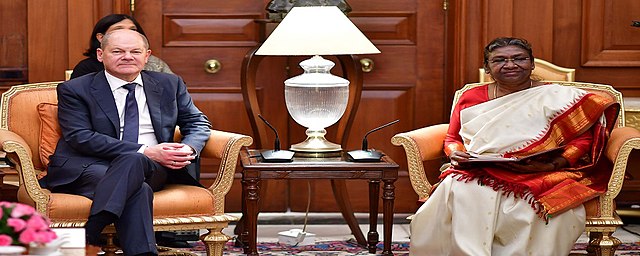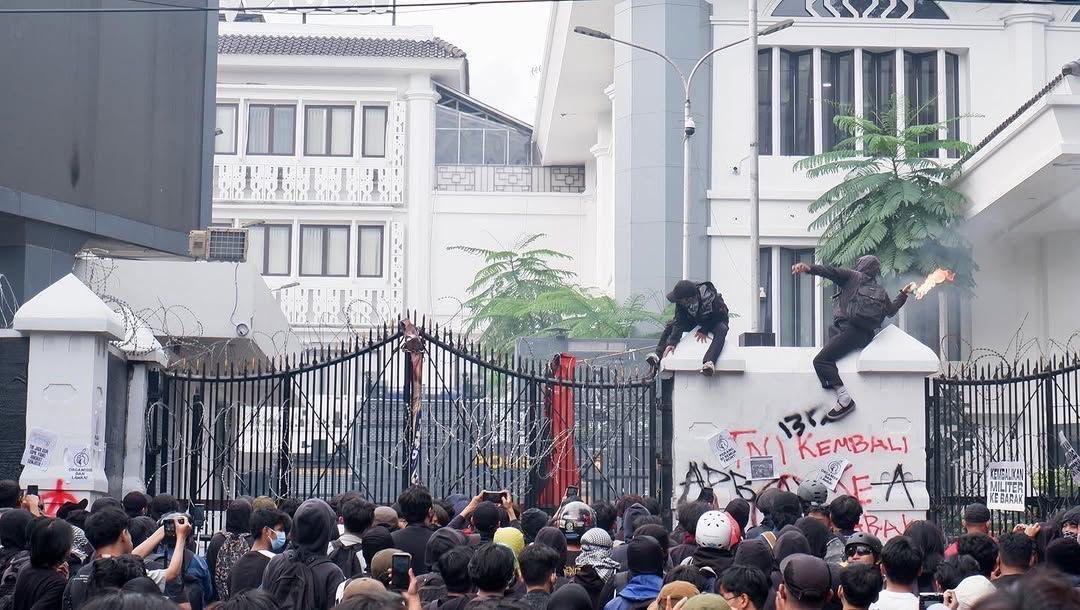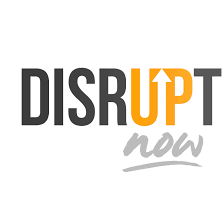The German Chancellor has been a busy traveller lately. As he flies around he speaks of a “multi-polar” world. What does this mean? It means developing a third force in international politics including Germany, in alliance with BRICS countries (Brazil, Russia, India, China and South Africa) – minus Russia of course. The pace of these attempts was increased after the Russian aggression in Ukraine.
In 2022, Olaf Scholz warned at the elite club at Davos against the sole hegemony of two powers, the USA and China:
“I don’t give any credence to the reports of a new bipolarity between the US and China, either. Of course, China is a global player – “once again”… that does not mean that we need to isolate China, neither does it give rise to the claim of Chinese hegemony in Asia and beyond. Particularly since we are seeing new and ambitious powers emerging in Asia, Africa and Latin America…When we realize that our world is becoming multipolar, then that must spur us on to even more multilateralism, to even more international co-operation.”
Scholz’s statements come in the context of him fighting hard for German capitalism to keep it in pole position within the EU. This year Scholz reiterated warnings against the USA new drives to protectionism, and German industrial intent (Davos 2023):
“[under the US Inflation Reduction Act] some 370 billion dollars have been earmarked for energy and climate change mitigation over the next ten years. … Through the German Climate and Transformation Fund we have made almost 180 billion euro available ourselves for the period 2023 to 2026.”
The Chancellor and the EU know they have to heavily invest to keep pace with the USA, including boosting pitiful levels of compute chip manufacturing in Europe. EU President Von der Leyen also set “sovereignty” as a key slogan in her 2021 State of the Union address. In particular Von der Leyen listed the example that 90 percent of European data is held in the cloud services of U.S. corporations such as Amazon or Microsoft as place where the bloc is vulnerable.
This year at Scholz issued a dire warning against “fragmentation” or protectionism:
“Over all of this hangs a sword of Damocles: the danger of a new fragmentation of the world, of deglobalization and decoupling…. I am doing my utmost to ensure that the free trade agreements we have successfully negotiated with Canada, Korea, Japan, New Zealand, and Chile will soon be followed by new ones: with MERCOSUR (South America), India, and Indonesia. And we are also open to discuss a tariff agreement for the industrial sector with the United States…. This is also the aim of the international Climate Club we launched during Germany’s G7 Presidency. A Secretariat has recently been set up at the OECD and the International Energy Agency. So the Club is now open to new, ambitious members.” Davos 2023
Scholz pro-actively opened this “Club” by inviting South Africa, Senegal and the Niger, to discussions with the G7 under his presidency. His approaches to Africa, have not been unproblematic. In particular Mali and Burkina Faso not only kicked out the French army (their former colonial masters) and welcomed in Russian forces including the brutal Wagner forces, but also refuses German Bundeswehr drone flying rights.
Unsurprisingly Scholz focused recently on BRICS. The term ‘BRIC-s’ was coined in 2001 by an economist Jim O’Neil for bankers Goldman Sachs. In 2014 ‘S’ was added for South Africa. O’Neill advised investors that BRIC represented a large, and growing portion of world GDP. In 2018, BRICS had a combined nominal GDP of US$26.6 trillion (26.2% of the gross world product), a total GDP Purchasing Power Parity of around US$51.99 trillion (32.1% of global GDP PPP), and an estimated US$4.46 trillion in combined foreign reserves. The group also accounts for 40% of the world’s population.
Many other countries queue to join BRICS. The BRICS International Forum president Anand reports that Egypt, Turkey and Saudi Arabia could join “very soon”. In earlier announcements Iran and Argentina had formally applied for membership. All the so-called MINTS (Mexico, Indonesia, Nigeria, Turkey) will probably end up within BRICS.
Obstructions were placed in the BRICS path. For example, the USA engineered President of Brazil Dilma Rousseff’s downfall and the trial of Lula da Silva (Guardian 2016). Lula’s re-election in Brazil uplifted BRICS. Brazil and India, which Scholz recently visited – both have grand visions.
President Lula’s foreign policy adviser, Celso Amorim, was an architect of ‘multipolarity’ (Lula’s Brazil, 30.01.2023; Der Spiegel):
“Amorim is considered the intellectual originator and architect of the multipolar strategy.. he believes that Brazil benefits from having several power centers determine world politics and therefore advocates good relations with all international players. For this reason, he expanded South-South relations.”
Lula aims to reweld several South American nations into Hugo Chavez’s original Union of South American Nations (USAN, or UNASUL) by reconfiguring the free trade agreement between the EU and MERCOSUR. As a measure of Lula’s determination to be ‘independent’, Lula has rejected the USA led shunning of Russia (Brazil and Peace 31.01.2023 Der Spiegel):
“Lula did not want to comply with Scholz’s request to pass on tank ammunition to Ukraine. “Brazil has no interest in passing on the ammunition to be used in the Ukraine-Russia war… “Brazil is a land of peace. And that’s why Brazil doesn’t want any involvement in this war, not even indirectly.”
That sentiment alarms Western imperialists who recognise:
“As was reported in the Munich Security Report… not a single state from Africa or Latin America – and hardly a state in Asia – supports the West’s sanctions policy against Russia. If serious setbacks are to be avoided in the global power struggle against Russia and China on a long-term basis, one must win back at least a few of the Global South’s countries. After all, in many countries of the South, the “Western-dominated order” is in many states in the Global South, characterized by “postcolonial domination” which engenders sympathy for a “post-Western” global order.“ German Foreign Policy 14 Feb 2023
India is also a leading economy meriting it as a destination for Scholz. India recently hosted the G20 meeting, as it entered the presidency of the BRICS. As Brazil, India refuses to deep freeze Russia. Indeed oil exports from Russia barred by the EU now largely go to India. Moreover “During the first ten months of India’s fiscal year (April-January), India’s imports from Russia have jumped to US $7.31 billion, five times that of the previous year. Russia ranks fourth on India’s list of suppliers, just behind the USA.“ German Foreign Policy 23 Feb 2023
But BRICS ‘independence’ from imperialism is constrained. Patrick Bond sees the BRICS as collaborators with Western imperialism:
“the BRICS are ‘collaborating actively with imperialist expansion, assuming in this expansion the position of a key’ bloc, whose own interests also rest in sub-imperialist stabilisation of international financial power relations, for the advancement of their own regional domination strategies.” (Third World Quarterly, 2016 Vol. 37).
But an even more important dimension is of course that BRICS includes Russia and China. Both imperialist nations. Hence, the BRICS itself is simply another imperialist formation – just as is the EU, and the nations led by the USA which in Europe at least – revolve around NATO.
China also woos the very same areas as Western imperialism does:
“Three days before the Ukraine paper, Beijing presented… its “Global Security Initiative.” This concept, announced by Xi Jinping a year ago, is a political continuation of the so-called Silk Road Initiative, Beijing’s almost global economic and development program…The text.. argues against “unilateralism, bloc confrontation and hegemonism” and advocates guaranteeing security not through military alliances but through individual agreements. At the same time, Xi lists where the focus of Chinese foreign policy will be in the future: in the countries of Southeast Asia, the Middle East, Africa, Latin America, the Caribbean and the Pacific Islands.” Der Speigel 4 March 2023
In conclusion, No doubt American imperialism is by far and away still the most dominant. This as measured by its economic, military and political reach. While its leaders fret over the growth of China, objectively the distance between ‘top dog USA’ and its imperialist rivals is enormous. But things change, they are right to be anxious. Hence their continual challenging of China (restricting Chinese access to microchip technology and restricting telecommunication access; imposing import restrictions into USA; returning to “home-shoring” industry; constant provocations via Taiwan; etc.
German Chancellor Scholz visits Biden this weekend in Washington. They have a lot to discuss. Not the least the failure of the USA to honor its part of the tank deal. Suspicions are that the USA holds up deliveries of Abrams to ensure a future arms-market share in Europe. Scholz plays a delicate game. He wants to bolster EU power. But he cannot antagonize the USA directly – as of yet. Along the way if he can bring into a ‘multi-polar’ world various BRICS and other ‘South’ countries – the more degrees of freedom the German imperialists have against the Americans.
All the major imperialists – the USA, China, the EU, Russia – see what is coming shortly – a new world war of re-division. US Air Force General Minihan wrote in a Memo on Jan 29 2023: “We will fight in 2025. Xi secured his third term and set his war council in October 2022.” And where is the united left that will fight for workers and toilers visions?
Originally published at the Red Phoenix 4 March, 2023 under the title: Mr Scholz Goes a-wooing BRICS”




